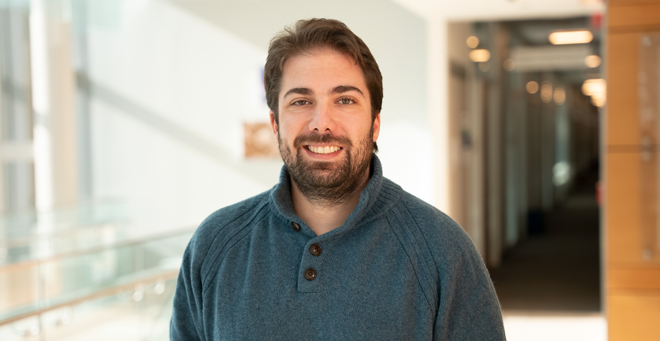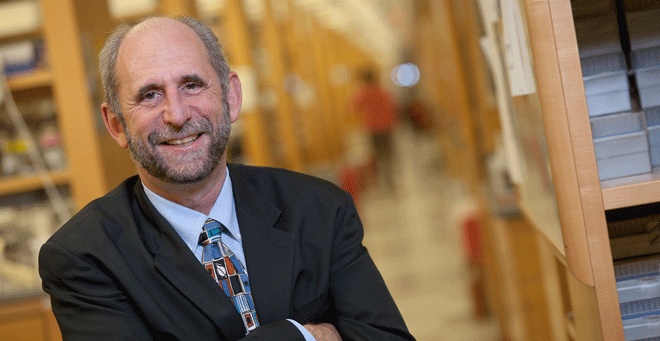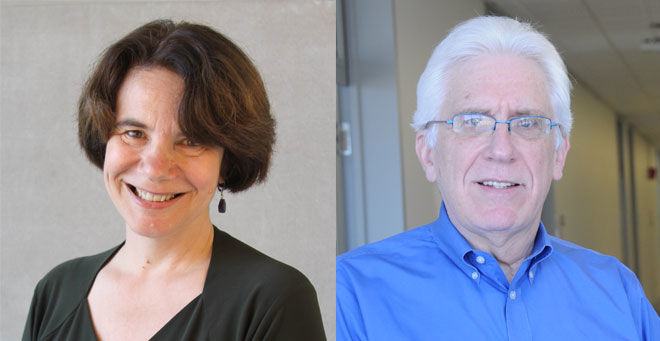
Marcus Ruscetti, PhD, assistant professor of molecular, cell & cancer biology, received a Research Scholar Grant from the American Cancer Society for his research on senescent cells and their role in tumor progression and immune suppression in prostate cancer.
Cellular senescence is a process that stops damaged cells from growing and can lead to their removal by the immune system before they become cancerous. However, if left uncontrolled, cellular senescence can cause inflammation that can stimulate tumor growth and resistance to cancer therapy.
“What we will do with this American Cancer Society grant is try to understand why sometimes senescence is good and stops tumors from growing and other times it’s bad and leads to immune suppression,” Dr. Ruscetti said. “We think different cell types can become senescent and they have different roles in promoting or blocking tumor growth.”
According to the American Cancer Society, one in eight men will be diagnosed with prostate cancer during his lifetime. Among American men, prostate cancer is the second leading cause of cancer death, behind only lung cancer.
“In certain cancer types, immunotherapy works amazingly well. Unfortunately, there’s still a lot of cancer types that don’t respond to immunotherapy and prostate cancer is one of them. We’re interested in finding out if senescence by signaling to the immune system could be a way to influence how immunotherapies work,” Ruscetti said.
The Ruscetti lab, which studies the mechanisms of immune evasion and immunotherapy resistance in cancer, is using single cell spatial technology to find new markers of senescent populations during different stages of cancer progression in mouse models and in human prostate cancer patient samples with a goal of developing new drugs that target only bad senescent cells while leaving good senescent cells alone. Preliminary research data shows that eradicating senescent cells can block tumors from forming and activate immune responses against prostate cancer.
“What we end up finding is these senescent cells stick around for too long. They secrete so many molecules that the immune system gets exhausted. So, if we remove the senescent cells, we can actually improve the immune response,” Ruscetti said.
He earned his PhD in molecular biology at UCLA, where he developed mouse models to understand the genetic drivers and cell states leading to prostate cancer immune suppression and metastasis. He began studying senescence and its impact on immune responses in cancer in 2015 during his postdoctoral fellowship at Memorial Sloan Kettering Cancer Center and came to UMass Chan in 2020.
In 2021, Ruscetti received the Prostate Cancer Research Program Idea Development Award from the Department of Defense. The following year, he was named a Nextgen Star by the American Association for Cancer Research.
The American Cancer Society award is for $800,000 over four years beginning in January 2024.


